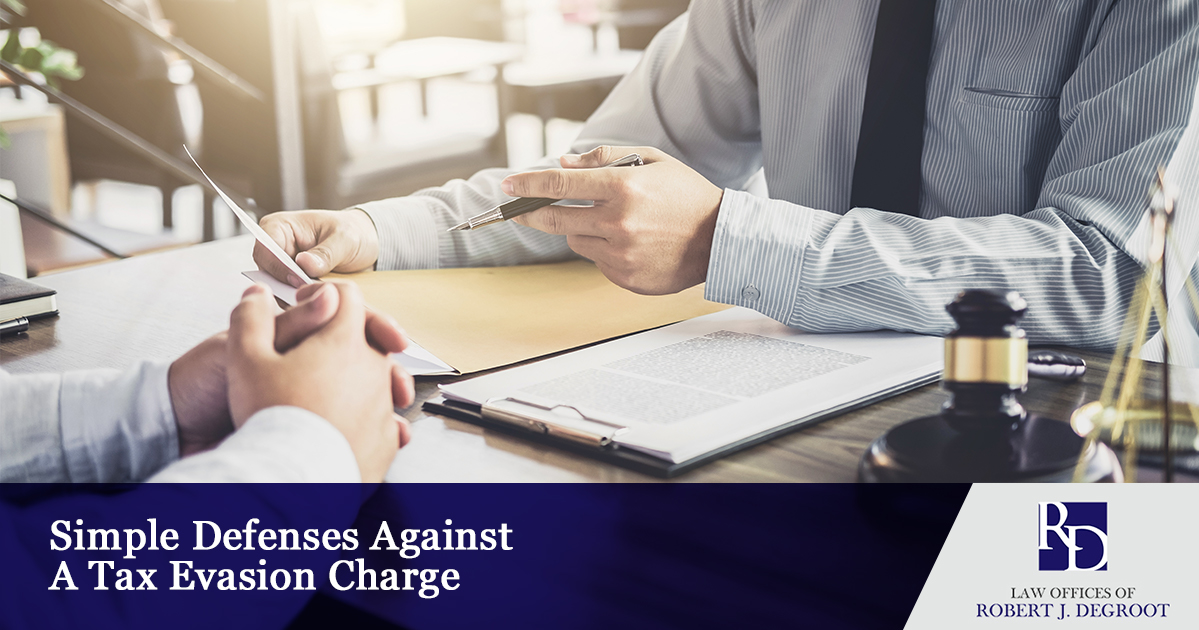
Although the IRS will generally not pursue negligent taxpayers, they take tax evasion crimes very seriously. Tax evasion is a type of tax fraud, and it’s exactly what it sounds like: the intentional avoidance of paying taxes. A person being charged with tax evasion will find little sympathy for weak defenses such as not being able to pay or intending to pay in the future. However, there are other possible defenses against tax evasion that may find success:
-
Inadequate Evidence
In order for you to be charged with tax evasion, it must be proven that you intended to avoid paying. Proving this one way or the other can be tricky, but the charges can be dropped if you have evidence, for example, that you simply forgot to file. If you use a professional tax service and are able to prove that you were acting according to advice given to you by these professionals, this might also be sufficient in illustrating a lack of intent.
-
Negligence (Honest Mistake)
Sometimes, taxpayers are simply mistaken. You might have gotten the date confused, or you may have been mistaken about what you need to report. The IRS has systems in place to recognize tax fraud over accidental negligence, but that doesn’t mean you’ll never be audited for a mistake. Talk to your attorney about your specific case if you believe you’re being charged based on an honest mistake.
-
Entrapment
Entrapment occurs when a person is tricked into committing a crime he or she wouldn’t normally commit. If you believe that you were tricked into committing tax evasion, contact the Law Offices of Robert J. DeGroot, and we’ll discuss your case.
Do you need defense for a tax fraud charge in the Newark area? The criminal defense professionals at Robert J. DeGroot have been providing trusted defense against criminal charges since the early 1970s.

